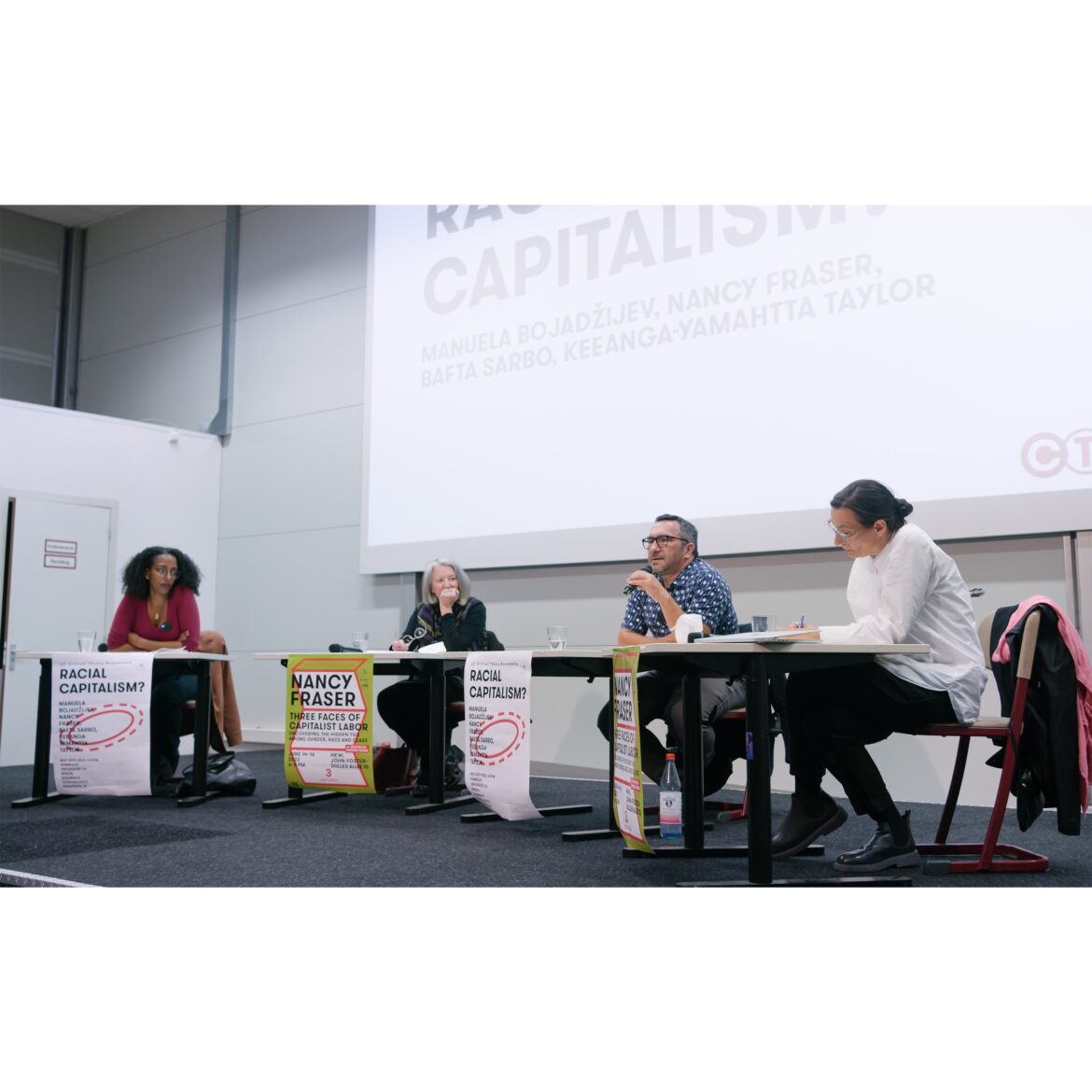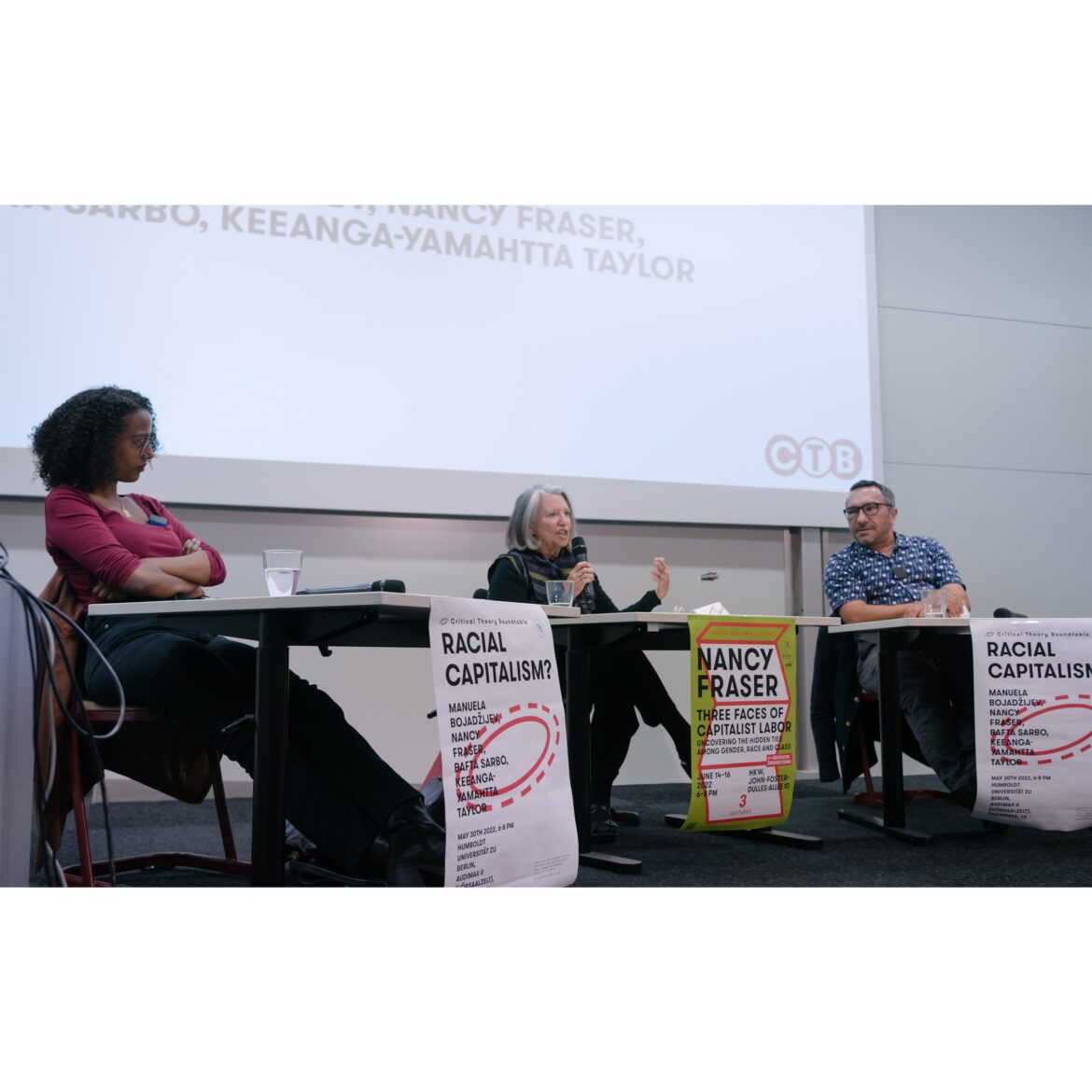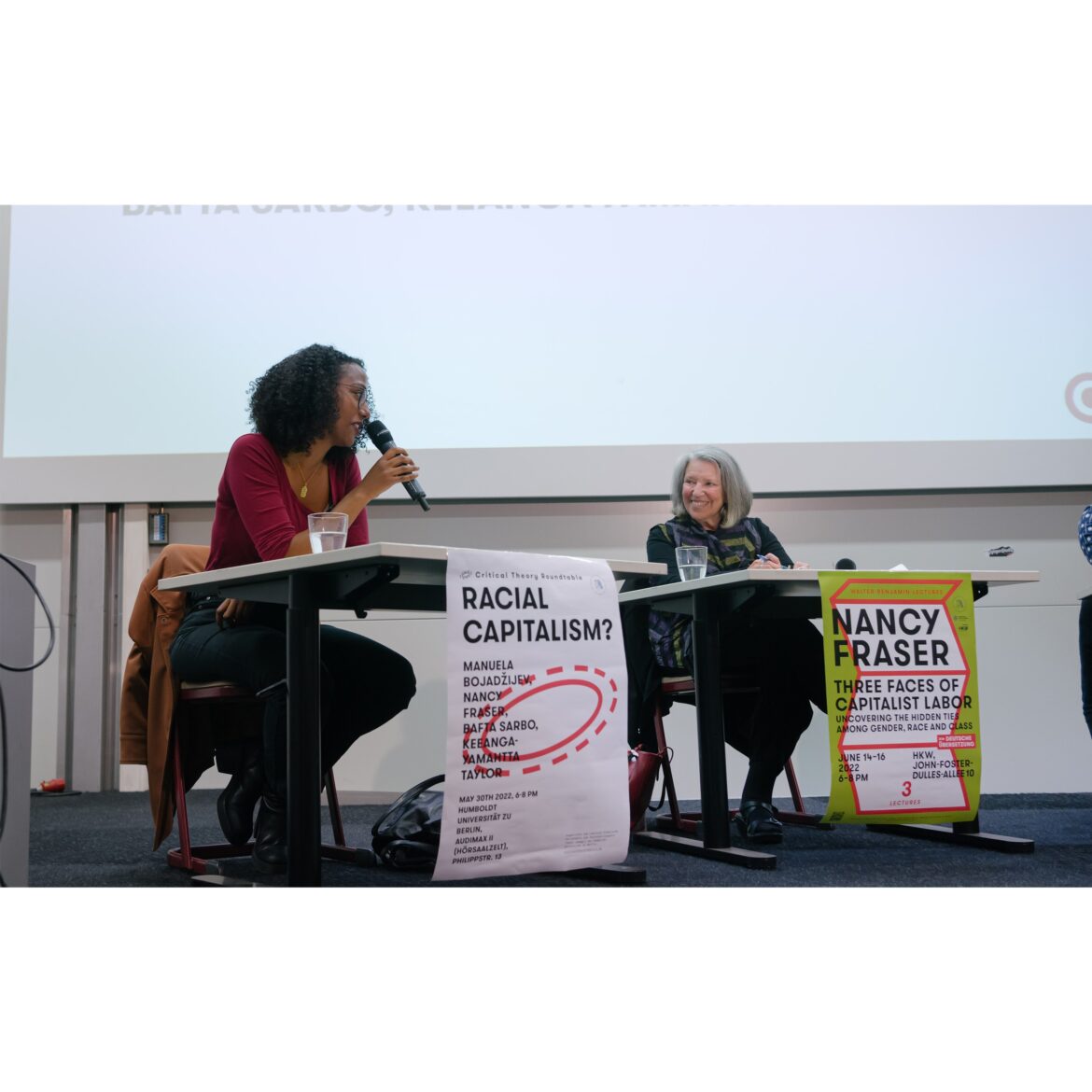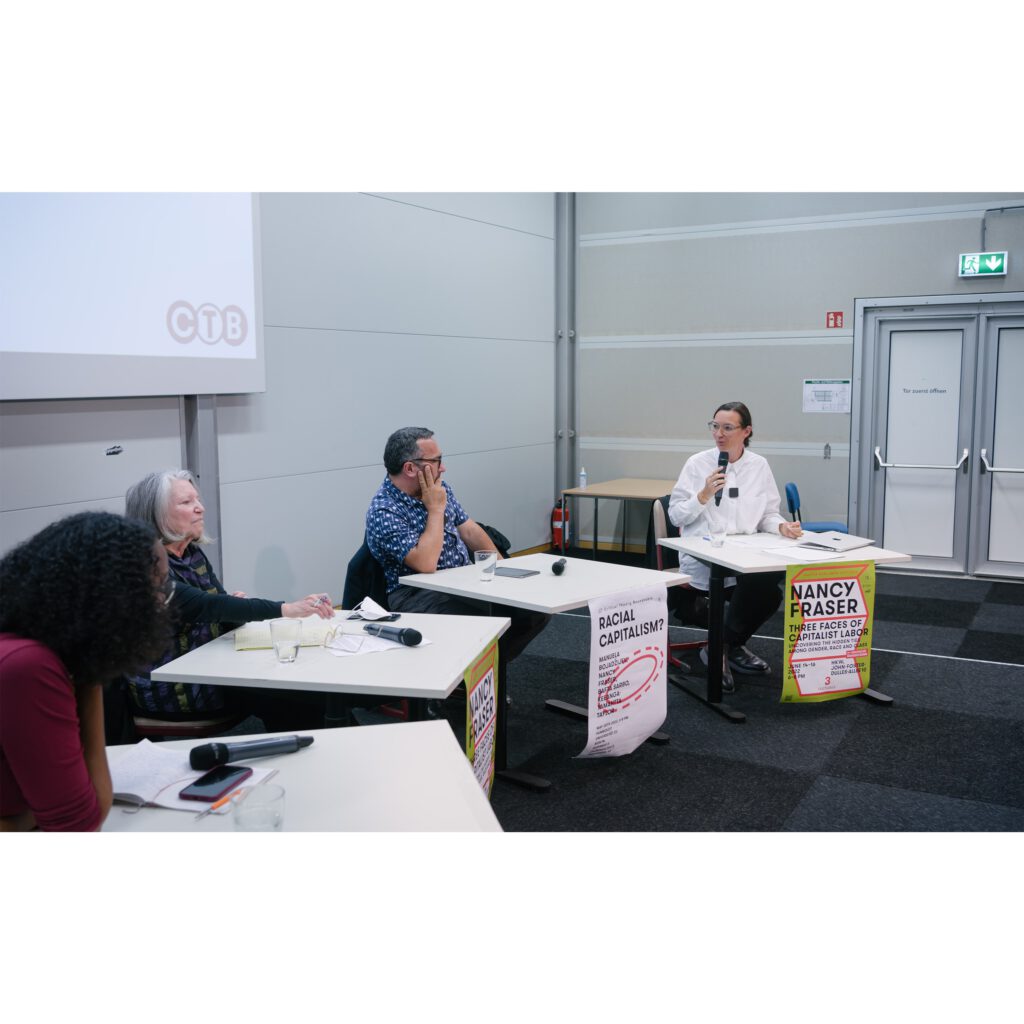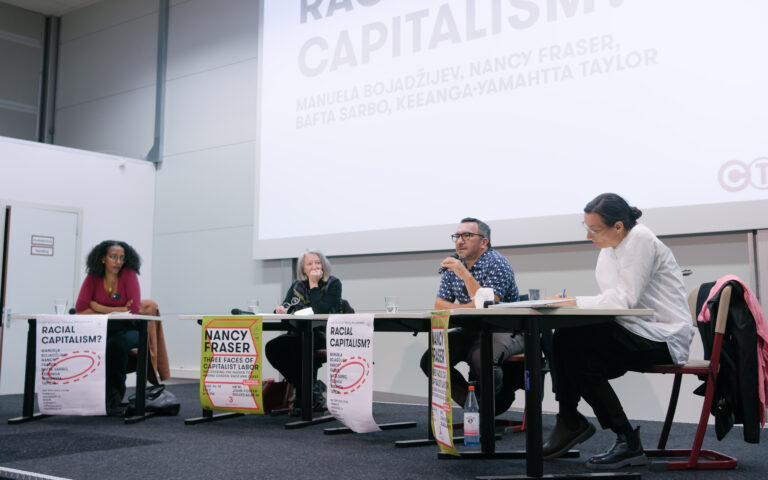Are capitalist societies necessarily racist? If so, why? Robin Celikates in conversation with Manuela Bojadžijev, Nancy Fraser and Bafta Sarbo.
Topic
In his 1983 classic Black Marxism Cedric J. Robinson employed the term “racial capitalism” to insist that, as a matter of historical fact, industrial capitalism was built on the basis of colonialism and slavery, and that, as a matter of sociological fact, capitalist accumulation continues to operate through racial differentiation and hierarchization. In recent years, “racial capitalism” has attracted not only sustained theoretical attention, but it has also become an important reference point for radical social movements such as the Movement for Black Lives. It is not difficult to see why: race (just like gender) structures who can access jobs, wages, housing, credit, mobility across borders and other social goods; and being subjected to austerity, police violence, imprisonment, environmental hazards and health risks is in fundamental ways inflected by racism.
In this panel discussed some of the central issues the turn to “racial capitalism” raises: If capitalism is necessarily racist, what makes it so? If race and gender are not accidental to, but constitutive of capitalism, how can the relation between class, race and gender be conceptualized in ways that also track their realignment in the current constellation? If, in the framework of racial capitalism, race is not primarily an identity but a structure of power, how does this impact our analysis both of capitalism and the movements that struggle against oppression and exploitation? And if the universal proletariat can no longer serve as the subject of revolutionary emancipation, what is the horizon for anti-capitalist struggles and transversal forms of solidarity today?
Speakers
Manuela Bojadžijev is a professor at the Institute of European Ethnology and co-head of the department „Social Networks and Cultural Lifestyles“ of the Berlin Institute for Empirical Integration and Migration Research (BIM) at Humboldt University Berlin. She is involved in numerous research projects around the topics of work, migration and digitalization. Most recently, she published the monograph „Die windige Internationale: Rassismus und Kämpfe der Migration“.
Nancy Fraser is the Henry and Louise A. Loeb Professor of Philosophy and Politics at the New School for Social Research. She is a leading critical theorist and socialist feminist whose work over the past forty years has addressed issues of power, identity, emancipation, capital, justice, and oppression, especially in relation to the limits of liberalism. Working with the broad tradition of Foucault, Habermas, and the Frankfurt School, Fraser has focused on structural injustice, with attention to the conceptual and ideological underpinnings that sustain it. Her focus is the critique of capitalism, which she conceives broadly, not as an economic system, but as an institutionalized social order, which harbors multiple forms of oppression and crisis tendencies. She is currently preparing a new book: Cannibal Capitalism. How Our System Is Devouring Democracy, Care, and the Planet and What We Can Do About It (to appear in autumn 2022).
Bafta Sarbo studies social sciences and deals with the relationship between Marxism and anti-racism. She has published numerous articles, among others in the newspapers “analyse&kritik”, “OXI” and „Jungle World“. She is politically active on the board of the initiative “Schwarze Menschen in Deutschland”, where she deals with racial profiling, migration policy and racism in Germany.












